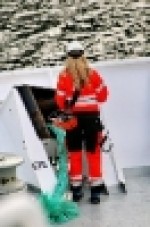 After graduating from a secondary school in Switzerland, graduates have the following options: go to work, enter a Swiss gymnasium, enter a Swiss technical school, or vocational school.
After graduating from a secondary school in Switzerland, graduates have the following options: go to work, enter a Swiss gymnasium, enter a Swiss technical school, or vocational school.
At the time of graduating from a general secondary school, a Swiss graduate is on average 15 years old and in order to receive a vocational education he will need to study for another 3-4 years.
The first of the opportunities for obtaining vocational education in Switzerland is the Swiss technical school (dt. Fachmittelschule). In a Swiss technical school you will have the opportunity to get an applied specialty, and also, if you want to enter a Swiss university after graduating from a technical school, then you will have such an opportunity. In order to enter the Swiss technical school (dt. Fachmittelschule) you will need to either pass the entrance exams in some cantons or pass an entrance interview with the admissions committee. There are a total of 22 cantons in Switzerland, and in some of them, in order to enter a technical school (dt. Fachmittelschule), you will not need to take exams or pass an entrance interview. Thus, the conditions for admission to a Swiss technical school in each individual case must be clarified separately.
As for the specialties offered by the Swiss technical school (dt. Fachmittelschule), the following professional areas can be distinguished that can be studied there:
- health
- social work
- pedagogy
- communication and information
- design and art
- music and theater
- applied psychology
Studying at the Swiss technical school (dt. Fachmittelschule) is very much related to practice and involves most of the study as practice, in the chosen specialty. Studying at a Swiss technical school (dt, Fachmittelschule) is possible not only for young people, but also for adults who would like to retrain or improve their skills.
The second possibility for obtaining vocational education in Switzerland is to enter a Swiss vocational school (dt. berufliche Grundbildung) after graduating from a Swiss secondary school. This type of education assumes that you will simultaneously study and work in your chosen working specialty in an enterprise. Those. you work 3-4 days a week at an enterprise in the specialty that you study, and then study theory at a special school for the specialty that you have chosen for another 1-2 days a week. In addition, students attend various courses that help them to deep their specialty.
This form of education in Switzerland (dt. berufliche Grundbildung) can last from 2 to 4 years. The advantage of this form of education is that you can study at the same time and immediately earn money and support yourself. The salary that a student receives while studying at a Swiss vocational school is quite sufficient to live modestly for a month. After graduating from a Swiss vocational school, a graduate, unfortunately, does not have the right to enter a Swiss university.
A student in Switzerland is offered about 250 working specialties to choose from. I must say that the majority of Swiss students choose this form of continuing education. Moreover, this form of education is possible not only for schoolchildren, but also for adults who want to either change their profession or improve their skills.
As for the 250 specialties that are offered as part of this form of study, they can be grouped into the following professional areas:
- construction
- education and social work
- chemistry and physics
- printing
- electrical engineering
- transport
- hotel and restaurant business
- systems of buildings and structures
- design and art
- health
- carpentry and interior finishing
- Informatics
- culture and mass media
- metal, mechanisms and watches
- food
- nature
- planning and design
- beauty and sport
- textiles and fashion
- sales and purchases
- transport, logistics and security
- economics, management and tourism
You can read more about these 250 specialties here.



